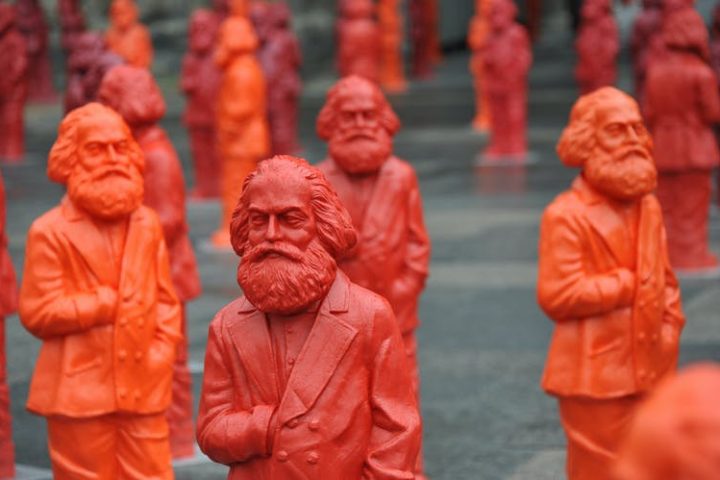José Manuel Corrales Aznar, European University, Professor of Economics and Business, European University
The initial months of Javier Milei’s presidency in Argentina have been marked by profound tension and polarization. The Argentine president’s striking proclamation, “There is no money,” was a clear warning of the inevitable economic recession. Paraphrasing Churchill, a harsh phase of “blood, toil, tears, and sweat” began.
Critics of Milei’s management have pointed out his anti-social and erratic economic drift, fearing an increase in inequality and a potential bankruptcy. These critical voices question the extreme approach of his policies, warning about macroeconomic stability, freedoms, and the well-being of the population.
Increasing Inequality
Inflation, which continues to soar, erodes the purchasing power of families, with half of the population living in poverty—23 million Argentines out of a total population of 46 million. This situation complicates the economic planning of families and businesses. A striking example is the increase in gas tariffs, which in some cases have risen by more than 300%.
The initial political actions of Milei’s administration have been based on drastic cuts in public services, mass layoffs, and reductions in key areas such as health, education, and transportation, which have triggered intense social mobilizations. This reduction in state spending has already led to the dismissal of tens of thousands of public employees, worsening the quality of life for the population.
Worsening Poverty
During the first months of Javier Milei’s administration, widespread poverty in Argentina has intensified. The lack of opportunities and the economic crisis have left many families in desperate situations, deepening the gap between the rich and the poor.
The government attempts to reverse this trend by eliminating social assistance programs and cutting essential services. Additionally, it tries to impose a precarious labor environment without prior dialogue, viewed by the labor movement as a severe attack on labor rights.
Economic Deterioration
Restricting public spending and aiming for a budget surplus have been cornerstones of Milei’s management. However, dismantling vital areas such as health, education, and transportation has not restored liquidity and confidence in the economic system.
Economic policies must go beyond cold numbers and consider their human impact. Poverty in Argentina has become widespread, with 60% of the population facing hardships and 3.5 million people living in extreme poverty, without adequate housing or sufficient food.
The purchasing power of families has decreased due to rampant inflation, cutting wages and pensions. Meanwhile, the prices of goods and services have skyrocketed, and tax revenue has dropped dramatically. All indicators of social well-being have worsened, and the Argentine economy faces significant challenges. Milei’s government must find a balance between economic stability and the population’s quality of life.
Curtailing Freedoms
Significant restrictions on press freedom have been reported, complicating the country’s democratic situation. For example, on May 21 in Argentina, after severe disagreements between the government and the press, social media and public media portals were suspended.
These decisions, accompanied by a disparaging discourse towards dissenters, have exacerbated tensions and political polarization. As a result, numerous voices advocate for more inclusive and dialogued policies to address the country’s real issues.
Social deterioration, persistent inflation, unbearable accumulated debt, and economic uncertainty must be addressed with rationality and moderation. The impoverishment of many Argentine families is not just a statistic; it represents broken lives and shattered dreams, with no signs of imminent socio-economic recovery.
Populist Radical Right
La Libertad Avanza is the political formation supporting Javier Milei, with a populist program. This movement is part of the radical right-wing currents gaining ground worldwide, driven by leaders like Donald Trump, Jair Bolsonaro, Nayib Bukele, Giorgia Meloni, and Viktor Orbán, among others.
The year-end elections in the United States could mark a turning point in the success of this ideological current. For Milei, it would be very positive if Donald Trump returned to the presidency in the White House, despite his recent conviction by a court and pending legal cases.
Since Javier Milei assumed the presidency of Argentina, his management has deviated from principles of dialogue, consensus, and the pursuit of the common good. The recent diplomatic incident in Spain, with severe insults against the Spanish president and his wife, clearly exemplifies this sought-after tension. Instead of advancing towards greater freedom and prosperity, his government has deepened the confrontational climate in Argentine society.
Need for Dialogue
In this context of division and confrontation, it is evident that Milei’s government must adopt a more inclusive, flexible, and dialoguing approach that allows for building bridges and seeking consensual solutions to the problems Argentina faces.
In conclusion, Milei’s management in his initial months of office has not represented progress in terms of freedom. Instead, what seems to be advancing is harmful controversy and social polarization.
The Argentine government’s political decisions and statements have sparked heated debates and deepened the division and tension in Argentine society, exacerbating existing tensions.
This translation was made by Dialektika. To read the original in Spanish, follow this link.




